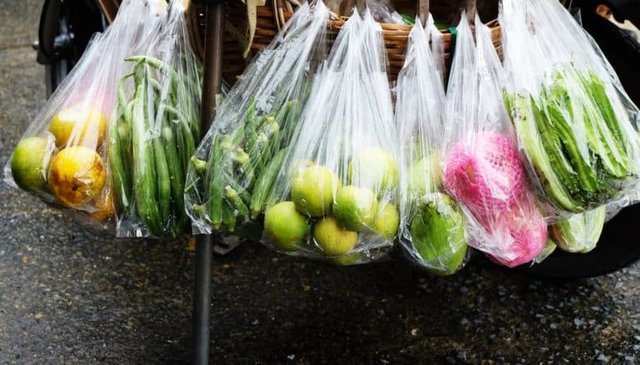Plastic bags: prohibit can not be allowed

Financially interested lobbying groups are trying to stop the mayor from banning plastic bags. The mayor of New York, Bill de Blazio, is determined to put an end to their use in the city. According to him, the introduction of a ban will allow the Big Apple to join other cities and countries that protect the environment. "We need to ban plastic bags," De Blasio said over the weekend on his Twitter account. "They harm the environment, the economy and New York." The mayor's struggle for ecology does not last the first day. De Blasio advocated the introduction of payment for plastic bags, thereby encouraging the use of a greener product - paper. The imposition of a 5 percent tax on plastic bags could have saved the situation, but Governor Andrew Cuomo stopped him, citing the need for an official state decision. Bill de Blasio ✔ @NYCMayor We need to ban plastic bags - the time for debate on this is over. They're bad for the environment, they're bad for the economy, they're bad for the New York. Here, it's time to put our planet first. https://www.nytimes.com/2018/03/03/opinion/sunday/plastic-bags-pollution-oceans.html ... 19:14 - Mar 4 2018 Opinion | Let's Bag Plastic Bags Political momentum is gathering to tackle the problems plastics pose for the planet. nytimes.com 1 294 559 people (a) talk about it Information about Twitter advertising and confidentiality And if the mayor does not have doubts about the correctness of his policy, opponents argue that the ban on plastic packaging puts a heavy economic burden on the shoulders of buyers. One example of lobbying is the American Alliance Progressive Bag, which has already spent millions of dollars to file petitions for the storage of plastic bags in stores across the country. Package with packages In the late 1970s, it was difficult to find disposable plastic bags in grocery stores. Since then, times have changed. Now, according to experts, every year around the world uses a trillion bags. We are so used to plastic packaging that sometimes we do not imagine our trip to shopping without it. When we pay at the cash desk at the grocery or other store, the cunning hands of the cashier pack our goods in a safe and light plastic, already carefully coated with polyethylene first by the manufacturers, then by the packers in several layers. When all this is released from the multi-layered plastic prison at home, and the used packaging falls into a trash can wrapped in the same polyethylene, people hardly think about the further fate of the mountains of plastic debris. According to statistics, the average American throws out about 10 disposable plastic bags a week. Residents of New York have distinguished themselves: they use twice the average for the country. If you associate all the packets used in the world in one another with each other, the distance will be as before the moon and back 13 times. Plastic has gotten out of control According to UN estimates, about 8 million tons of plastic waste is thrown into the oceans every year. The report of the World Economic Forum-2016 says that by 2050 there will be more plastic in the oceans than fish, by mass, unless we stop its massive use. Its production generates about 400 million tons of carbon dioxide a year. This figure can not but affect the environment. California - the only state of America, which banned the use of disposable plastic bags in stores as early as 2014. This action was approved by voters in a referendum in 2016. In January, the European Union responded to Europe's first strategy, which was to limit the use of disposable plastic products and ensure their full suitability for reuse by 2030. In December 193, the countries of the world community signed a UN resolution on the control of the export of polyethylene to the World Ocean. 39 countries pledged to reduce the amount of plastics entering the sea. New York and Massachusetts, too, may well be in the forefront of the war with plastic bags this year, if they defeat their adversaries-lobbyists.